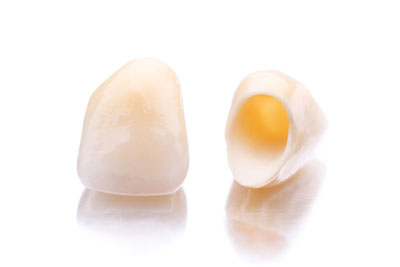 As a leading provider of dental crowns, we know that a lot of people rely on them to fix any number of problems. As such they have become one of the most widely used prosthetic devices in dentistry. Since it is so widely used, the technology and materials continue to be improved upon as dental scientists are working endlessly to make the best fit for each and every person. We know that not every person’s mouth is the same. What works in one situation, material wise, may not be an ideal fit for someone else.
As a leading provider of dental crowns, we know that a lot of people rely on them to fix any number of problems. As such they have become one of the most widely used prosthetic devices in dentistry. Since it is so widely used, the technology and materials continue to be improved upon as dental scientists are working endlessly to make the best fit for each and every person. We know that not every person’s mouth is the same. What works in one situation, material wise, may not be an ideal fit for someone else.
As such, while full porcelain crowns are the most requested dental crowns in San Francisco, there are other types of crowns that need to be explored with our customers so that they can pick the one that best suits them. Unfortunately, most people do not know the types of materials available to build a dental crown with, nor the pros and cons of each. Here are a few of them.
Types of Dental Crowns
Porcelain Crowns
For dental crowns, porcelain has long been the standard product since it has a similar color to tooth enamel. In fact, porcelain dental crowns are so lifelike that people will not be able to tell the difference between the dental crowns and natural teeth. The additional benefit with porcelain is that they do not conduct heat and cold very well to help with the initial sensitivity in the tooth after placing the crown. Porcelain also takes on many of the qualities of enamel, meaning it is extremely hard but also brittle.
There are advantages and disadvantages to this. The hardness means that porcelain crowns can be extremely hard, which can cause them to wear on the opposing teeth when chewing. In addition, there are a few other minor disadvantages to porcelain. These include the fact that they are more brittle than some of the other types of dental crowns, and that they use a more comprehensive bonding process which can extend the duration of the recovery time after the procedure.
Gold Crowns
Gold was once the most commonly used form of metal for dental crowns until porcelain crowns were found to be more efficient and effective. Regardless, gold has multiple qualities that make it the perfect material to use when creating crowns. For example, gold is extremely strong when it is in an alloy. Pure gold is very soft, so we make an alloy of gold with titanium, silver, or palladium to make it stronger. Crowns consisting of this gold alloy are extremely durable.
At the same time, gold is soft enough to where it does not wear out the opposing teeth as quickly as porcelain. On the disadvantages side, gold is a very good conductor of heat, which means that intensity and duration of a person’s sensitivity to hot and cold substances will increase significantly. We can discuss both options when you come into Dr. Mohammed H. Hassan, DMD for dental crowns.
Related Posts
4 Tips for Implant Crown Care
Wondering how to properly care for your new implant crown? Read on to learn some helpful tips on crown care. The amount of time you are able to keep your implant crown …
How Dental Crowns Affect Your Smile
A person’s smile is one of the first things that they show off to the world, and a dental crown is one way to bolster that smile and restore teeth that may …
4 Aftercare Tips for Implant Crowns
Implant crowns are a long-term solution to tooth loss that are easy to care for, but the process of receiving the new and beautiful replacement teeth is not always pleasant. To make …
Will I Need a Dental Crown After a Root Canal?
Dental crowns are a great restoration option used both on their own and in conjunction with other procedures such as root canals and dental implant placements. They are often recommended after a root …

